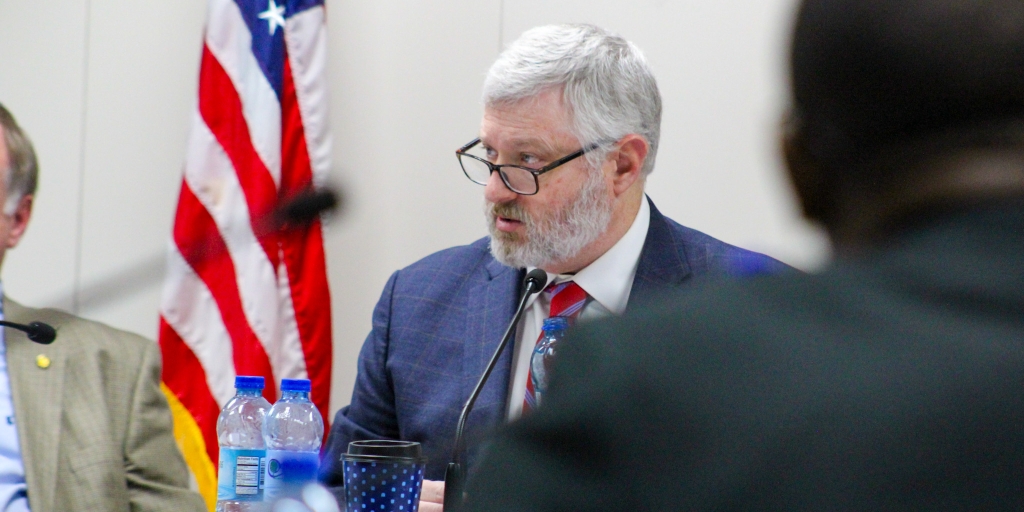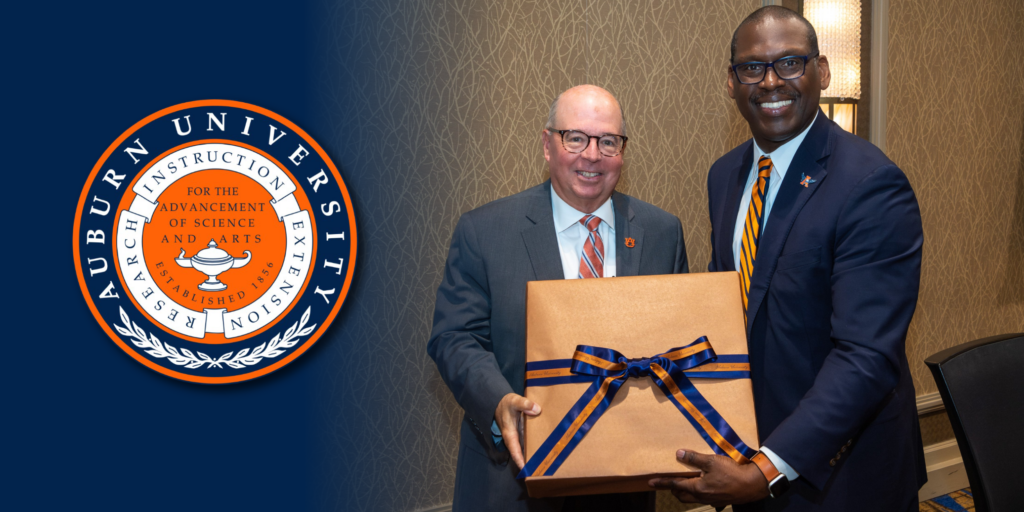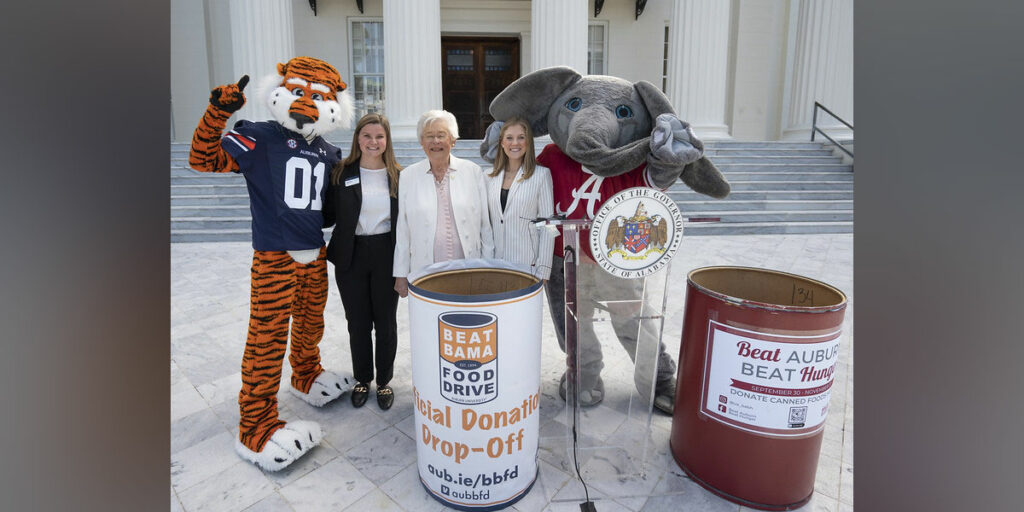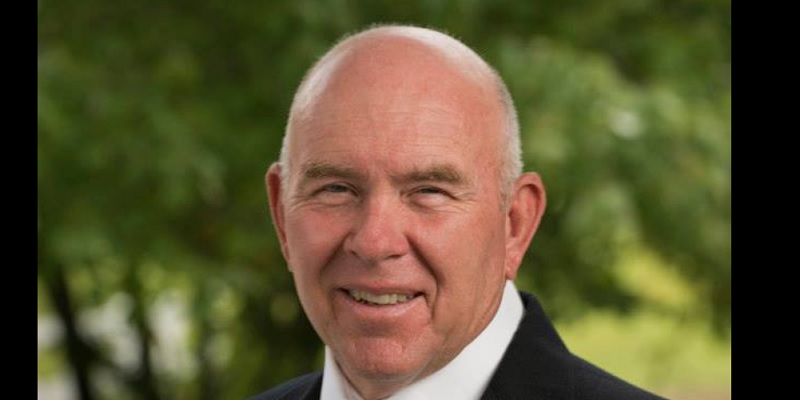Allen Greene had it all figured out.
“My plan was to be a Hall of Fame Major League Baseball player,” he said. “I had that plan in high school, which is why, when I got to college, I majored in finance because I wanted to manage my money. And I knew I was gonna have a lot of it.”
Baseball was the sport for which Greene, now the athletic director at Auburn University, had been known. He had played football, basketball and soccer, too, but the diamond was where he expected to make his bones.
And the native of Bellevue, Washington, in suburban Seattle, was on his way, earning a baseball scholarship to Notre Dame and getting selected by the New York Yankees in the ninth round of the 1998 MLB draft. But after three seasons in the minor leagues, Greene’s plan appeared to derail when he was told he didn’t measure up.
“It was the first time that … I wasn’t good enough,” the 41-year-old said, sitting in his office in the Auburn Athletics Complex. “The reality of me not being good enough, that was the first time I’d ever experienced that. It creates chaos internally because my identity had been wrapped up into sports, baseball specifically, since I was 5 years old. To be 20, 22, 23 years old and my identity had been erased, truncated, if you will.
“How do you navigate that? You’re used to going to a locker room, being with teammates, playing a game, getting paid to play a game,” Greene continued. “Your world revolves around this lifestyle. When that abruptly comes to an end, you find yourself trying to figure out who you are and what you’re going to do.”
This is why Greene, the guy who dreamed of joining Micky Mantle, Willie Mays and Joe Morgan in the Baseball Hall of Fame, wanted to get his college degree. He knew this moment would come.
“I wanted to be as prepared as I possibly could be, to be able to navigate it,” he said. “The plan didn’t work out the way I wanted it to, but it worked out the way that it was supposed to. And I’m very fortunate, fast forward to right now, I’m here today.”
Greene is a year into his tenure as the director of athletics at Auburn. He is the first African-American to be in that position on the Plains and just the third to join that fraternity in the Southeastern Conference.
Greene’s love of baseball and his study of finance could have put him on a path to the front office of a pro franchise. But his experience in professional baseball opened his eyes to how much of a business sports is, and how professional sports wasn’t a fit for him.
“I would much rather spend time helping shape young people and helping shape their lives as opposed to the transactional side of professional sports,” he said. “Honestly, some people want to be a GM, and that’s great for them. But it wasn’t for me. I recognized that intercollegiate athletics was the way for me to have that impact, particularly at a time in my life that I cherished so much as a student athlete. To have the ability to impact 500-plus student athletes. … It’s rewarding beyond measure.”
Greene began his walk beyond the basepaths in the athletics department of Notre Dame, working in development and NCAA compliance from 2003 to 2009.
From there, he was an assistant athletic director at Ole Miss and then was the athletic director for the University of Buffalo.
As an athlete, Greene can relate to that euphoric time when a player of a sport is “in the zone.” He recounted his most memorable game, a basketball contest in which he took a knee to the head as he dove for a loose ball, proudly pointing out the scar over his right eye.
He’s not sure if he lost consciousness then, but he played that way when he returned to the court.
“I came back in the game and I shot the ball like I wasn’t conscious,” he said. “I remember coming back from that injury and playing better, being in the zone. That was a really unique feeling that most athletes don’t get a chance to experience.”
The Auburn AD paused when asked if athletic directors get that feeling, too.
“I find myself moving on quicker than other people,” he said. “If we win, that’s great. But I’m on to the next thing. It’s hard to try to slow down and smell the roses. It’s hard to slow down and just take it in.”
With 15 programs under his charge, Greene is always moving on to the next thing. In truth, there is no offseason for an athletic director, which makes it tough for Greene to follow the “other” seasons in his world.
His 13-year-old daughter, Rian, is playing travel volleyball. His son, Sammy, 11, just wrapped up basketball and is on to baseball while daughter Seneca, 7, is in T-ball. All three play piano.
“I’ve got my three kids and wife (Christy) at home. That’s one family,” he said, “and I’ve got then the Auburn family. For people like me, in order to do our jobs really, really well, we have to sacrifice a whole heck of a lot.”
But the Auburn athletic director isn’t complaining. He accepts it. He embraces it.
“I get up ready to come to work every single day excited because I know that I get to have such a large impact on everybody else, and (what I) try to do is bring my family into my work world as best as I can.”
Greene said being the first African-American athletic director at Auburn “never, never crossed my mind.” He thought carefully about simply being African-American.
Even now, he said, it doesn’t affect his role on the campus. But he acknowledges it could have an impact on student-athletes at Auburn, and beyond.
“I do recognize that me, a person of my profile in this position has a ripple effect throughout not only our league, but our country,” he said. “I’ve gotten more emails than I could guess with young people of color or females wanting to reach out to connect with me just to have some professional development discussions.
“Our student athletes, particularly our young black men, are probably surprised by the hire but I think welcome it because they see someone who looks like them in a prominent position that isn’t necessarily participating in sport or in entertainment.”
(Courtesy of Alabama NewsCenter)













